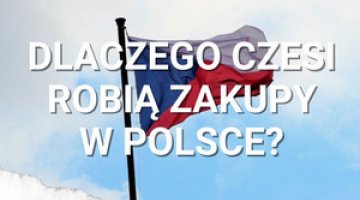Czech Republic: Milos Zeman and Karel Schwarzenberg in the run-off of the presidential election
In the first round of the first universal presidential election in the Czech Republic held on 11-12 January, the former left-wing prime minister, Milos Zeman, came first with 24.21% of the vote. He finished only slightly ahead of the foreign minister, Karel Schwarzenberg who garnered 23.4%. The former prime minister, Jan Fischer, who according to opinion polls looked set to participate in the run-off, in the end won 16.35% of the vote.The Social Democratic candidate Jiri Dienstbier fared relatively well with 16.12% of the vote, whereas the performance of candidate of the co-ruling Civic Democratic Party (ODS), Premysl Sobotka, had a disastrous result with only 2.46% of the vote. Zeman and Schwarzenberg will compete in the run-off (scheduled for 25 and 26 January). President Vaclav Klaus's second term in office will end on 7 March.
Commentary
- The result achieved by Karl Schwarzenberg comes as a surprise as the support for him in recent months has not exceeded 11%. The media has for a long time focused on the rivalry between Zeman and Fischer, the latter of whom had lost the sympathies of a large section of his voters with his unconvincing attitude and non-transparent connections with sponsors. Foreign Minister Schwarzenberg did not have to parry too many attacks, he dominated the social media, had the most professional campaign in which the enthusiasm of young volunteers was successfully used to offset the argument about the candidate's age (he was born in 1937). Schwarzenberg was backed by many representatives of the Czech intellectual elite and he referred in the most convincing manner to the legacy of President Vaclav Havel. Turnout was rather high, at 61.3%, in part due to the discontent with the New Year amnesty announced by President Klaus. This played into Schwarzenberg's hands as it mobilised a part of voters to opt for a clearer alternative to the incumbent president (Klaus supported Zeman).
- The stance taken by the candidates on Russia and their business contacts will play an important role ahead of the run-off. Schwarzenberg's team will lay emphasis on Zeman's controversial background and the lack of transparency in party financing (the Party of Civic Rights Zemanovci) whose vice-president and sponsor Martin Nejedly is also the CEO of Lukoil’s Czech subsidiary. Zeman's close aides, the former communist official Miroslav Slouf and the former colonel Zdenek Zbytek (expelled from the army after 1989), both have strong business ties with Russia and active defending its interests, and are thus also a burden to Zeman. As for Zeman, he will above all attack Schwarzenberg for his being a member of the unpopular government led by Petr Necas, the leader of the TOP 09 coalition party. Another TOP 09 leader, the finance minister Miroslav Kalousek is associated not only with budget cuts but also with corruption scandals.
- When taking into account the potential preferences of those who cast their votes for the candidates that did not make it into the second round, the chances of the two remaining candidates are well balanced. Bookmakers had tipped Schwarzenberg to make it through to the run-off and the media latched on to this, which helped Schwarzenberg; the bookies are now predicting a Schwarzenberg win. If he uses the effect of the “rising wave”, he may indeed win. However, Zeman has a more stable electorate and as a good speaker he may win over voters in direct debates broadcast by the media. Schwarzenberg's campaign, so far based mostly on endorsements from other people, may not prove to be equally effective ahead of the run-off.





